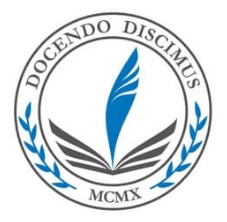Please use this identifier to cite or link to this item:
https://rep.vsu.by/handle/123456789/45960Full metadata record
| DC Field | Value | Language |
|---|---|---|
| dc.contributor.author | Nikolaenko, S. | - |
| dc.contributor.author | Kul’bayeva, B. | - |
| dc.contributor.author | Orynkhanova, G. | - |
| dc.date.accessioned | 2025-01-31T11:31:35Z | - |
| dc.date.available | 2025-01-31T11:31:35Z | - |
| dc.date.issued | 2024 | - |
| dc.identifier.citation | Nikolaenko, S. The Marriage Status of Women in the Belarusian Literary Language and Northeastern Dialects / S. Nikolaenko, B. Kul’bayeva, G. Orynkhanova // Acta Universitatis Sapientiae. Philologica. – 2024. – Vol. 16, № 3. – Р. 23–40. | ru_RU |
| dc.identifier.issn | 2067-5151 | - |
| dc.identifier.uri | https://rep.vsu.by/handle/123456789/45960 | - |
| dc.description.abstract | The article compares the semantics of the lexical group “the names of women by marital status” in the Belarusian literary language and in the northeastern dialect, the distribution area of which is the Vitebsk region and part of the Mogilev region. Of the 24 names extracted from the general language and regional dictionaries, the overwhelming majority (two-thirds, i.e. 66.66%) are literary words. This is natural, since the literary language as the core of the national language has a more extensive vocabulary. The names of women were divided according to marital status, i.e. in relation to marriage, into four subgroups: premarital, marital, postmarital, and extramarital. The words for women in marriage have the same number in the literary language and in the dialect. Literary names of women of illegitimate status have a significant numerical advantage – 4 to 1 dialect word. Although there are fewer dialect names, they differ, firstly, in greater expressiveness and figurativeness, and, secondly, in a variety of word formation means – suffixes. The analysis also showed that the evaluative connotations of units in this lexico-semantic group (LSG) are influenced by sociocultural gender stereotypes. Words denoting women in premarital and marital status have a positive connotation, the names of women in extramarital status have a negative connotation, and the names of divorced women have a negative connotation as well. | ru_RU |
| dc.language.iso | en | ru_RU |
| dc.publisher | Walter de Gruyter GmbH | ru_RU |
| dc.relation.ispartofseries | Acta Universitatis Sapientiae. Philologica;Vol. 16, № 3 | - |
| dc.subject | Belarusian literary language | ru_RU |
| dc.subject | northeastern dialect | ru_RU |
| dc.subject | names of women | ru_RU |
| dc.subject | marital status | ru_RU |
| dc.subject | categorical seme | ru_RU |
| dc.subject | marker | ru_RU |
| dc.subject | distinguisher | ru_RU |
| dc.title | The Marriage Status of Women in the Belarusian Literary Language and Northeastern Dialects | ru_RU |
| dc.type | Article | ru_RU |
| Appears in Collections: | Научные публикации 2024 | |
Files in This Item:
| File | Description | Size | Format | |
|---|---|---|---|---|
| The Marriage Status of Women.pdf | 322.47 kB | Adobe PDF | View/Open |
Items in DSpace are protected by copyright, with all rights reserved, unless otherwise indicated.
Ресурсы наших партнёров:
Репозиторий Белорусского национального технического университета
Электронная библиотека Белорусского государственного университета
Электронная библиотека Гомельского государственного технического университета имени П.О.Сухого
Электронный архив библиотеки МГУ имени А.А. Кулешова
Репозиторий Полесского государственного университета
Электронная библиотека Полоцкого государственного университета
Научный репозиторий Могилевского института МВД Республики Беларусь









